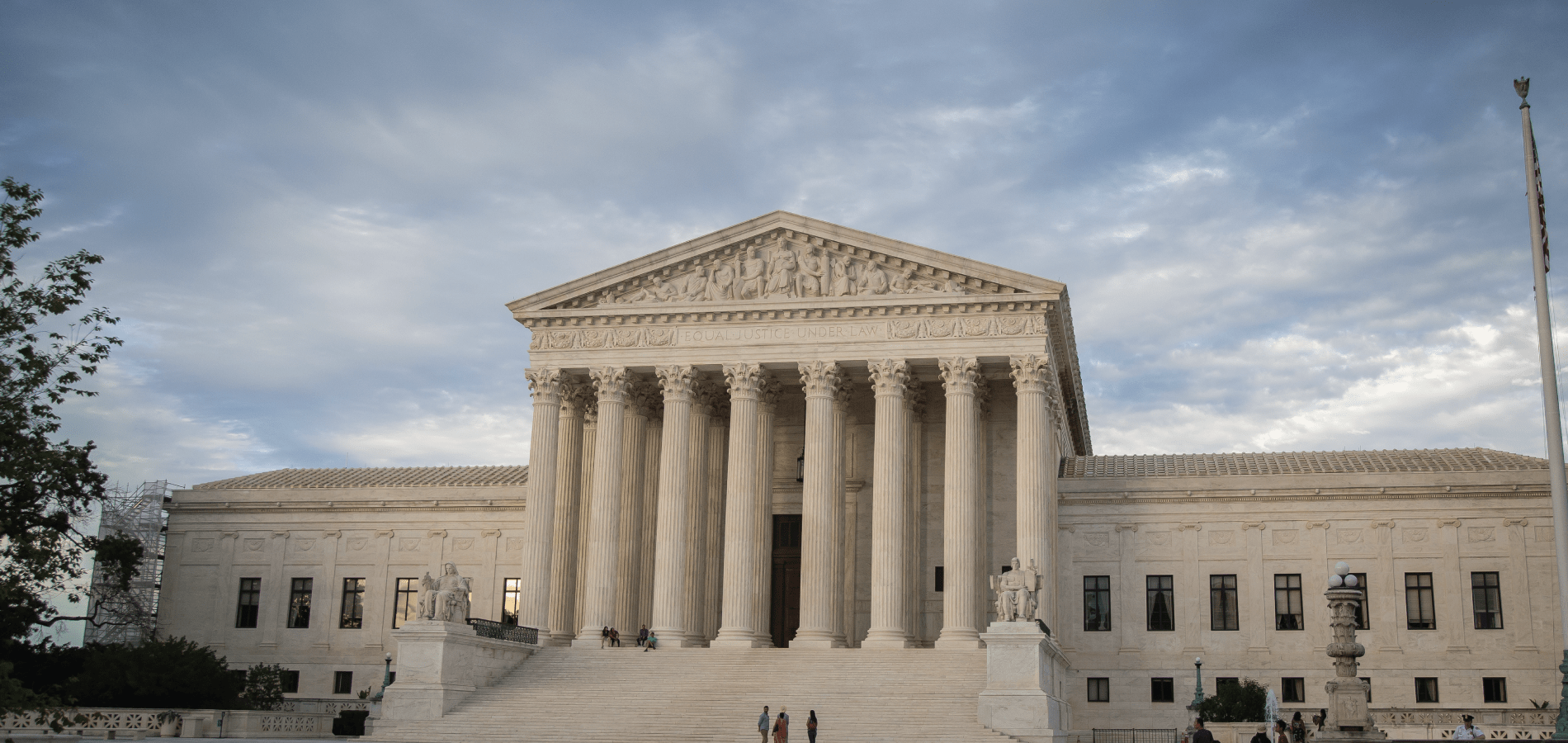Fifty years ago today, members of the Lesbian, Gay, Bisexual, and Transgender (LGBT) community fought back against a police raid at the Stonewall Inn in New York City with violent demonstrations now known as the Stonewall Riots. Considered the first significant protest calling for equal rights for homosexuals, the Riots inspired future gay pride celebrations to be held annually in June. In 1999, June was officially declared “Gay and Lesbian Pride Month” by President Bill Clinton. Pride Month was later expanded to “LGBT Pride Month” by President Barack Obama in 2009.
The Stonewall Riots launched an international phenomenon that continues to grow as LGBT rights are increasingly recognized across the globe. As Pride Month comes to a close, join HeinOnline in exploring its origins and the development of LGBT rights in the United States.
Before We Get Started
Don’t miss out! Make sure you have the databases we’ll be mentioning in this post. Follow the links below to start a trial today.
Revisiting the Stonewall Riots
Following the conclusion of World War II, paranoia resounded throughout the United States toward any seemingly subversive members of society. Throughout the 1950s and 60s, police departments and government agencies kept lists of people considered to be potential security risks, including anarchists, Communists, and even homosexuals. Paranoia trickled down into state and local governments, and city-wide sweeps to remove gay people from parks, neighborhoods, bars, and beaches became commonplace.
The Stonewall Inn in Manhattan, New York City was just one of many businesses which catered to gay customers at the time. The owners—the Genovese Mafia family—were familiar with police raids and regular patrons knew of the security procedures established to avoid unannounced invasions. The Genovese family prevented most raids by paying police officers for early tip-offs and inspecting entrants to avoid admitting any undercover officers. Finally, if Stonewall did experience a raid, white lights would signal the customers to cease any homosexual activity.
Despite these efforts, police targeted the Stonewall Inn for failing to hold a proper liquor license in the early morning hours of June 28, 1969. In these kinds of raids, police would seize any alcohol and arrest the owners of the establishment, but also identify and arrest drag queens or other men dressed as women. To do so, officers would line up the customers, check their identification, and a female officer would verify their sex individually in another room. If such men were found, they would be arrested on the spot.
Standard procedure failed the June 28 raid when the Stonewall customers refused to cooperate with the police. Determined to follow through, the officers decided to forego typical procedure and instead announced that they would be taking everyone in question to the local station. Those not under arrest were released, but instead of returning home, they began to congregate around the Inn. Passersby soon joined them and the crowd gradually amassed nearly 600 people. When officers began to load their suspects into police cars, the crowd spontaneously exploded into violence. For hours, police attempted to stave off the rioters, ultimately clearing the street by 4:00 a.m. News of the riots soon spread, however, and more demonstrations ensued over the next six days.
LGBT Rights in HeinOnline
The Stonewall Riots laid the groundwork for greater acknowledgment of LGBT rights in the United States, but it was not until 2003 that same-sex sexual activity was legalized nationwide. In the landmark decision Lawrence v. Texas, the U.S. Supreme Court struck down state laws against sodomy between consenting adults, ultimately ruling that laws which prohibit private, consensual homosexual activity are unconstitutional.
Users can easily view Lawrence v. Texas in HeinOnline’s U.S. Supreme Court Library. The new and improved database home page now provides an overview of the Supreme Court along with a list of the most-researched landmark cases in chronological order. Look through the list to find Lawrence v. Texas right on the front page.
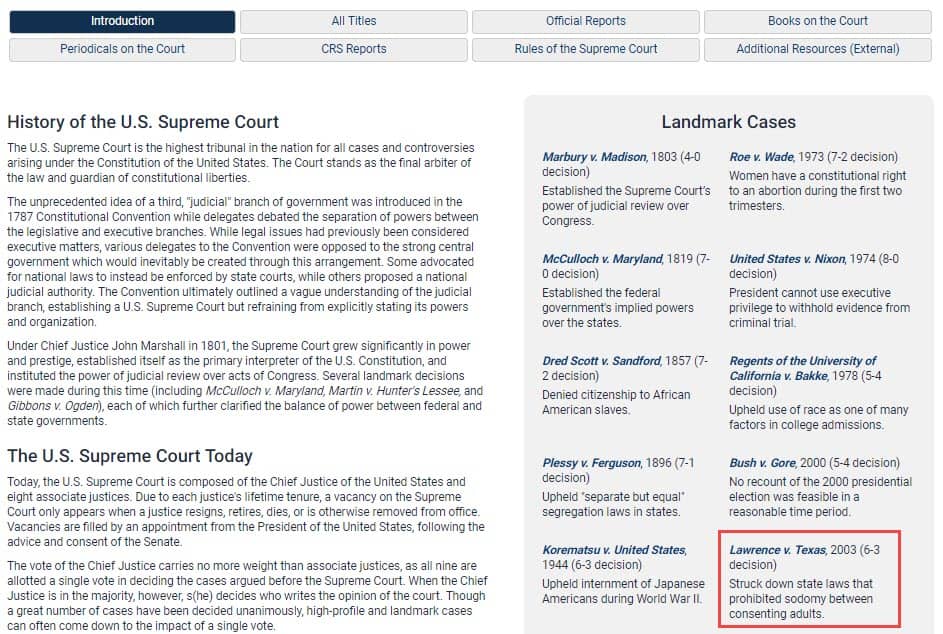
In 2009, President Obama further supported LGBT rights when he signed into law the Matthew Shepard and James Byrd Jr. Hate Crimes Prevention Act (known colloquially as the Matthew Shepard Act) as an addition to the National Defense Authorization Act for 2010. In response to the murders of gay student Matthew Shepard and African-American James Byrd Jr., the act expanded on previous hate crime legislation to make hate crimes related to gender, sexual orientation, and gender identity punishable by federal law.
Users can find the National Defense Authorization Act for Fiscal Year 2010, including the Matthew Shepard Act, in HeinOnline’s U.S. Statutes at Large. From the home page of the database, simply enter the name of the act into the main search bar to view the act itself as the first result.
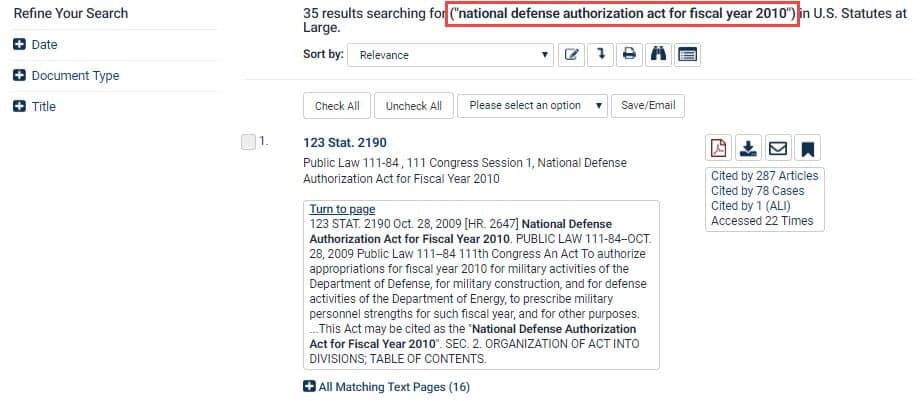
In another landmark decision, the U.S. Supreme Court ruled that the federal government must legally recognize the marriage of same-sex couples in United States v. Windsor. The 2013 ruling struck down Section 3 of the Defense of Marriage Act (DOMA) which previously defined “marriage” as a legal union between one man and one woman.
Another major Supreme Court case, United States v. Windsor can be found directly on HeinOnline’s Supreme Court Library home page. The Defense of Marriage Act can be found in HeinOnline’s U.S. Statutes at Large by entering a full-text search for “Defense of Marriage Act” to bring up the act as the first result.
Additionally, view the legislative history of the Defense of Marriage Act in HeinOnline’s U.S. Federal Legislative History Library. Among several browse options, users can choose to browse by the first letter of the publication title. To find DOMA, select the letter “D” and scroll to find the act’s legislative history.

Following the Supreme Court ruling on same-sex marriage, a 2015 decision in Obergefell v. Hodges granted all of the accompanying rights and responsibilities of opposite-sex marriage to same-sex couples, including being legally allowed to adopt children. While this case has not yet been published as an official U.S. report, HeinOnline does give users access to the slip opinion. Users can simply search obergefell v. hodges without quotation marks in the main search bar of the U.S. Supreme Court Library to view the slip opinion as the first result.
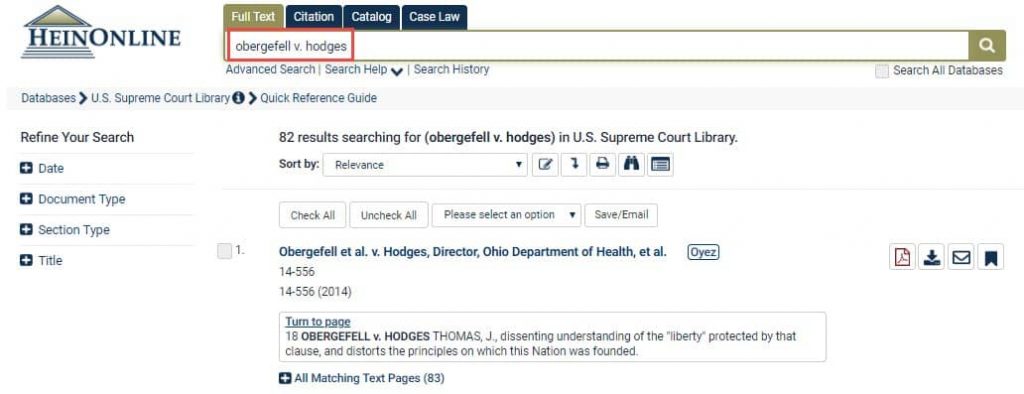
Alternatively, navigate to the Advanced Search option of the U.S. Supreme Court Library, hyperlinked in blue underneath the main search bar. Next to Case Name, enter “Obergefell et al. v. Hodges” which will bring up one result.
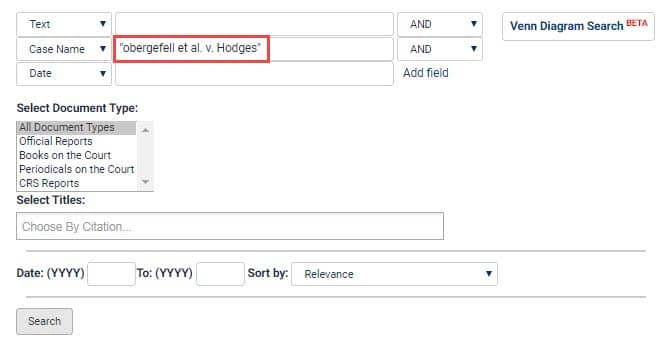
Though substantial progress has been made toward federal recognition of LGBT rights, state recognition continues to vary nationwide. Whether you’re an ally or member of the LGBT community, keep up with progress toward social equality with HeinOnline.
Be a well-informed agent of change. For more blogs on hot topics, click the Subscribe button at the top of this post.
Don’t forget to connect with HeinOnline on our social media platforms: Facebook, Twitter, Instagram, and YouTube.

